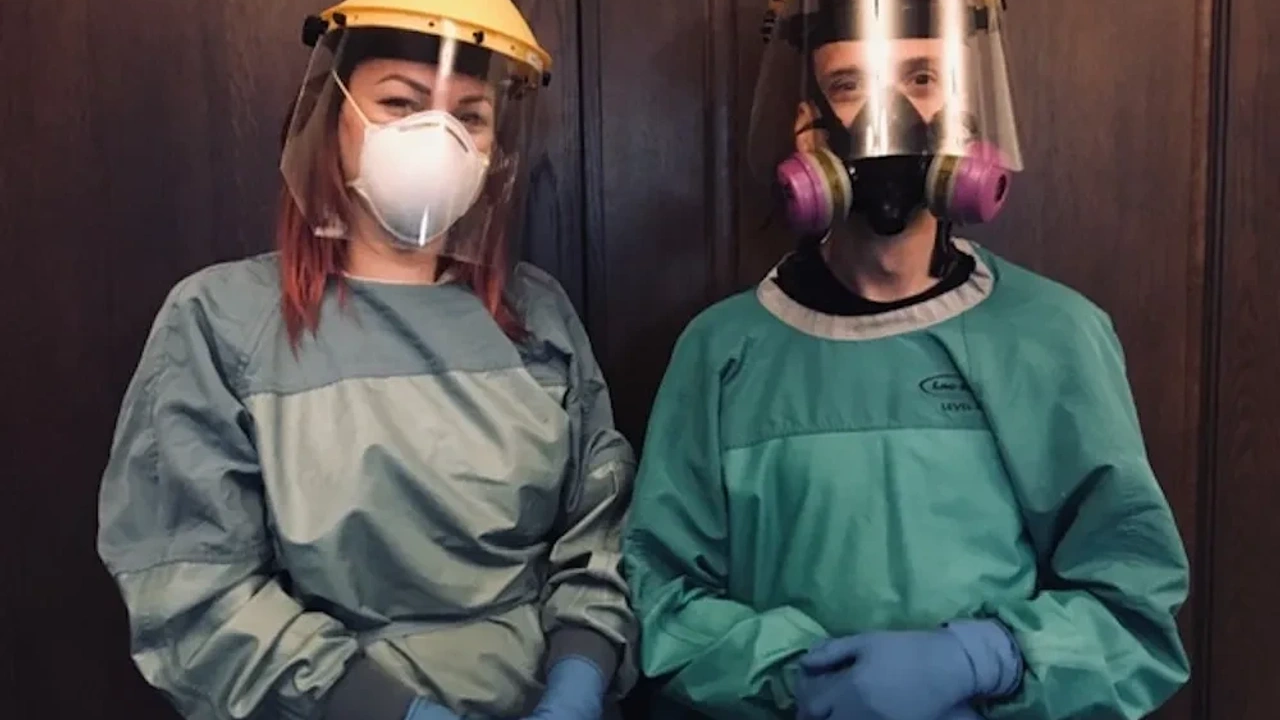
What About the Last Responders?
May 12, 2020There’s an outbreak of COVID-19 and no visitors are allowed in the care home where my mom lives. A recent update from the care-home manager included a link to a local newspaper article with the headline, “Community association donates 450 COVID care packs to front-line workers.”
Mom’s care home and the local hospital were the recipients of these love bundles, which included Girl Guide cookies, hand creams, water bottles, savoury treats, specialty coffee, chocolates and more. Gestures like this and the 7 PM cheer convey our individual and collective gratitude to the essential workers and first responders. These are the people who care for our sick and dying in hospitals and care homes and those who make it possible for us to buy groceries and get the medicine and gas we need.
Why are we so slow and reluctant to celebrate those who care for our dead?
Until just weeks ago, the hard work, dedication and sacrifice of the bereavement industry, or death trade as it’s sometimes called, wasn’t even listed as an essential service. Despite this recent shift in designation, I’ve heard no acknowledgement nor praise for the essential workers like the ones named by our provincial government. This includes coroners and workers performing mortuary services such as: funeral homes, crematoriums, cemeteries and workers supporting the appropriate handling, identification, storage, transportation, and certification of human remains.
Is it our historic disdain for the business of deathcare that perpetuates this disregard for last responders? Or is it our relationship to death and the denial of our own mortality that keeps us distant or detached?
The pandemic care chain does not end in our hospitals.
Do we give any thought at all to what happens to our person after they die? What do we even know about what happens after we leave our dead in the hospital or care home? We’ve shut out from our hearts and minds the emotional and physical well-being of the workers—the many hands and hearts that transport, bathe, dress, casket, burn, bury and carry out the necessary vital-statistics paperwork to count and care for our dead.
A recent news story recounted how personal protective equipment destined for funeral-home workers was diverted to healthcare. Another news item reports on a local cemetery needing a new public education campaign to remind oblivious recreational users to respect the mourners gathered to honour, remember and lay to rest their dead.
It’s time to honour our last responders.
When reflecting on the care packages received by staff, the manager of mom’s care home was quoted as saying, “It makes us all feel so much better knowing that we are not in this fight alone.” I wonder what difference it would make to our many funeral, cemetery, crematorium and community deathcare workers if they were honoured by similar community support.
Chaos would ensue without these essential deathcare workers. A robust, responsible continuum of care depends on the health and safety of our last responders. Let’s give them the respect, appreciation and applause they deserve.
Our thanks to Ngaio Davis, Managing Director KORU Cremation | Burial | Ceremony for igniting our thoughts on this topic.
What about you?
What does the work of last responders mean to you?



